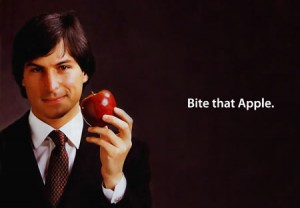In response to Samantha Kho’s blog Going Veg.
I believe there is a huge ethical issue with these new restaurant openings near holy pilgrimage sites. Even though I was shocked to see this quote from a McDonald’s spokesperson, “In markets across the world, McDonald’s respects local cultures and has adopted our menu and dining experience to local preferences. The new restaurants in pilgrimage areas will be vegetarian-only because of the specific area and customer base,”. This statement is contradicting and misleading. If McDonald’s really respected the local culture the company would have made these restaurants by these holy sites. Eating meat is sacred in these areas. What is McDonald’s? A burger joint. It is a disgrace to the people for even having the brand image of McDonald’s in their vicinity. The statement is also misleading in the fact that these words are sugar coated. ” respects local cultures and has adopted our menu and dining experience to local preferences”, this is not showing respect to local cultures, this is just trying to make profit. I would not disagree with the approach McDonald’s is making on expanding in the Indian market but showing respect to culture and changing one’s menu is two completely different things.
In easy terms, McDonald’s new restaurants is like a Manchester United fan walking into a local London pub filled with Arsenal fans, It does not match.
Category Archives: Uncategorized
Diabetes not your problem? Think again
I was shocked to see this information in the article Diabetes not your problem? Think again
Canada’s economy, businesses, and us individuals are effecting by poor decisions made by others.(Dis including people who had no control over being diagnosed) Drastic changes need to be made to avoid these ridiculous losses we need to incur. “Conservative” estimates in 2000 were 2.5 billion dollars. Estimation of 16.9 billion dollars in 2020 for the costs of diabetes. Unfortunately due to people who only care for themselves, monetary incentives may be needed to force people to eat healthier and exercise more frequently. Subsidies or taxes may be needed to enforce these actions. The only problem with these methods are they are hard to measure and will have ethical issues involved. A way to enforce subsides may be through individual businesses. If a business incorporates a diabetes prevention program with sufficient participants a subsidy may be given. The government needs to intervene one way or another to get a message across to people. Not only is one’s own health in jeopardy but there are substantial costs to the country as a whole.
RE:Arising Social Responsibility Mindset of Consumers and Businesses
In response to Melissa Ng’s blog https://blogs.ubc.ca/melissang/2012/11/10/new-arising-mindset-of-consumers-and-businesses/
I disagree with Melissa that the future of businesses is to think less about profit then it is to be socially responsible. In a perfect world where all people have a high disposable income, consumers may think to become more socially responsible but reality is not so sweet. Two identical shoes, but one is priced higher for some socially responsible act. If there a no significant ties to the socially responsible act most people will buy the cheaper shoes. AlthoughToms is a great exception to this. Toms has done an outstanding job of promoting itself through celebrity endorsements. The reality is though Toms is a trend and will struggle in the future. I believe though businesses will strive to become not socially irresponsible. This will become a new point of parity which businesses will aim to obtain. In a situation with two identical shoes, one shoe has a median between socially responsible and not socially irresponsible, while the other shoe is socially irresponsible. One would assume people would buy the first shoe. I believe if businesses are better off with their profits being not socially irresponsible compared to being socially irresponsible, they would go with the first.
Where is the logic?
Women are a complex creature, studied by many yet rarely understood. A few weeks ago a friend of mine was discussing on the possibility to start a fragrance business. Out of curiosity I searched the profit margins for fragrances. They were on average a whopping 95%. With technological advancements fragrances are now made on an average of around $1-2. The majority of the costs come through packaging, the container itself, and advertising. I thought to myself a fragrance business would be a great idea but slowly realized the difficulties involved. Most high end fragrance companies are not selling a fragrance at all, they sell their brand. The difference between a $150 perfume to a $20 is really close to none. Some cases the $20 perfume may even smell better than the $150. One would think the barriers to enter are relatively low, which they are but yet not. You could even say there are two barrier of entry for fragrance companies. The small barrier is creating a fragrance. The second barrier is the brand barrier. To make these logic defying profits you need an established high end brand or the cash to endorse a celebrity.
I was shocked by the power and the influence that brands can have on people.
Unless one really likes the smell, is there a need to buy a 30 cent chemical for over $150?
I-Pod, I-Pad, I-…….
Imagine you were creating the Macintosh computer. Or if you were creating the I-pad. What type of market research would you have forgone? Would you have conducted surveys to potential consumers? The reason Steve Jobs was so successful was surprisingly the fact that he did almost no market research. Many would find it hard to believe that Jobs view on market research and focus groups only limited one’s ability to innovate. When asked how much research was done to guide Apple when he introduced the I-Pad, Jobs said, “None. It isn’t the consumers’ job to know what they want. It’s hard for consumers to tell you what they want when they’ve never seen anything remotely like it.” The astounding thing about an entrepreneur is their vision to see ahead. They are always a few steps ahead of everyone else in terms of their vision. What differentiated Steve Jobs from others was his talent with technology. His vision was an extra few steps ahead of everyone else. A response to a reporter sums up to me what an entrepreneur is, “Did Alexander Graham Bell do any market research before he invented the telephone?”
one hundred dollars, two hundred dollars, three hundred dollars…….
Two business owners are both busy and don’t have time to keep up with their bookkeeping. The first owner decides to higher an accountant to keep track of these issues. The second owner decides that bookkeeping is all mumbo jumbo and decides to leave things as they are. A few years later the first owner is swimming in a pool of money whilst the second owner is swimming in a pool of tears.
If you don’t like accounting you’re basically saying you want to burn money and throw it away. When your company’s expenses are off the charts who do you talk to? When you want to know your most profitable customer or product? Does the company currently have the cash flow to avert a crisis? Having a hard time remembering deadlines; rent, loans, bills, and taxes? From making your business more cost effective, to making more profits, avoiding sticky situations, and keeping up with deadlines are just a few of the ways an accountant can help with your company.
People say accounting is no fun. My idea of fun is walking around with extra bills in my wallet. If your idea of fun is walking around with piles of debt in your pocket be my guest.
More for others!
Leave the tough stuff to the accountants! https://www.youtube.com/watch?v=G6vS1edTsV8
Oh Quiznos
Marketing is a key tool for a company to advertise their products. Successful marketing campaigns have a substantial effect on a business and can be the difference being number one in your industry or just the average. Nike’s “Just do it” campaign and Apple’s “Get a Mac” are two great examples. In 1988 Nike’s sales were at 800million dollars, by 1998 Nike’s sales well exceeded 9billion dollars. After launching the “Get a Mac” campaign, Apple gained 42% market share growth in its first year and was voted best campaign of the decade. Just as much as marketing can benefit a company the opposite can also occur. Quiznos has been on a decline which has been caused by bad advertising or lack of, competitors, and the recession. Ad campaigns which have been unsuccessful led to store closures and decline in sales. In 2009 Quiznos spent 54.7million in media and in only a few years the amount has dropped to 12.5 million. With competitors on the rise, Quiznos acted. Global investment firm Avenue Captial agreed to use half of its 150million dollar investment into marketing. Quizno’s has launched their first advertising campaign since 2010, which is “Qrave Quiznos”. Will 25 new menu items with additional customer service and their new refreshed approach to enhancing their business be enough to climb out of this deep hole?
https://www.youtube.com/watch?feature=player_embedded&v=KNnX6XRQBec
Ronaldo vs Messi
Undoubtedly the two best football(soccer) players in the world right now are Cristiano Ronaldo and Linonel Messi. One may ask how these two player can relate to the business world? Beside the hours of training put in day in and day out, the rivalry between the two pushes them past their limits. Businesses act in the same way. A classic example would be between Pepsi and Coca Cola. Be it through t.v commercials, marketing ads, new flavors, these companies need to sway the thoughts of their consumers to their side. As consumers our needs and wants are fulfilled through competition. If there is little or no competition in the market our desired taste may not be acquired, but that is not the case with a competitive. As consumers taste or wants in a product change, companies jump on this opportunity to get ahead of their competitors. Competition in business also have many positives behind the scenes. Competition can push companies into making better technology for their products. This may not have many direct effects but some piece of technology made by these companies, may lead to innovations in other fields. A world class goal on the pitch or a brand new flavor, competition brings out an extra gear which pushes us to strive for more.
Freeman VS Friedman
After listening to many opinions from the class on the Sept, 13th, I was actually a little surprised with the amount of people that had made ethics the top priority of the business. I would agree that in a developed country like Canada, businesses should not only strive for profits but to support its members and the community that its in, taking more of a Friedman approach. But what about in the case of a 3rd world country or a developing country? I’m sure each individual will have their own morals and ethics but when it comes down to business, would it not be more important for them to keep food on the table? Through personal experiences when i traveled to Mexico, I witnessed some of the harsh realities of the country. By any means necessary the people needed to get a hand on money. Money was what provided for themselves and their families. I met some of the sincerest people down there but when it came to business the look in their eyes seemed to be desperate, everyday a battle.
Because our class is very diverse with many cultures, I wanted to take more of a world approach to this topic and hear about other peoples experiences and thoughts from around the world.
Whistleblowers- Punished or Rewarded?
Bradley Birkenfeld, an American Banker which worked at a Swiss based UBS was recently rewarded US-$104 million by the U.S Internal Revenue Service.
UBS is a global financial services company which serves their clients in over 50 countries.
A Whistleblower by definition “is a person who tells the public or someone in authority about alleged dishonest or illegal activities occurring in a government department, a public or private organization, or a company or the Government .” Exposing illegal activities should be a moral. But why is an act of moral being rewarded $104 million? What is the motivation behind some of these whistle blowers? There is an US federal whistleblower law which offers financial reward as much as 30% of the tax collected from the information provided. Is this the incentive the government should give to workers? It should be made mandatory for large organizations to have an ethics oversight or an internal review process for such issues not the workers. I believe stronger laws need to be enforced due to the potential impact this act can have on one’s life. In the case of Brad Birkenfeld, whose bank account increased a few digits, should now be worry free but that may not be the case for other individuals. Unfortunately though regardless of the motives, society deems these people as snitches, traitors, and untrustworthy.
104million for doing something that’s right, whats wrong with this picture?
http://business.financialpost.com/2012/09/11/ubs-whistleblower-gets-us104-million-irs-award/


